From a longlist of 12, six novels have been shortlisted for the 2023 Worldwide Booker prize. Our academics overview the finalists ahead of the announcement of the winner on May 21.
Not a River by Selva Almada, translated by Annie McDermott
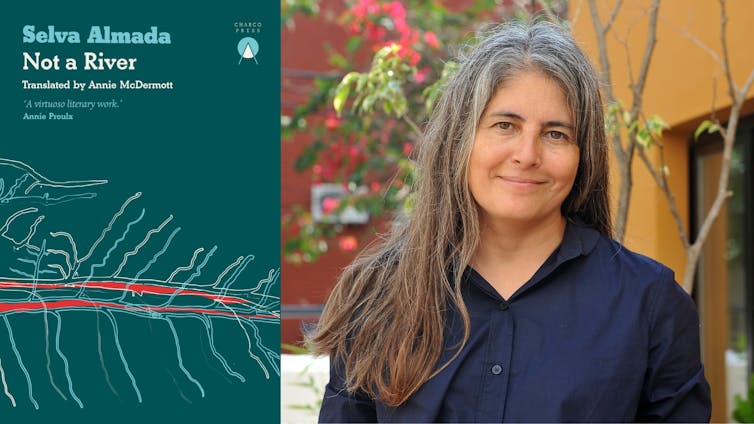
Courtesy of Booker Prizes
In Not a River, the last word instalment in Selva Almada’s “trilogy of males”, earlier and present collide in a nightmarish sleepwalk in route of inevitable violence. Two males take Tilo, the son of their pal Eusebio, on a fishing journey alongside the very river the place Eusebio misplaced his life some years earlier. They row to “the island”, a closed neighborhood that does not perception outsiders. The heat bears down on them as ghosts of every earlier and present reel them in, and the intimacy of their fishing journey takes a macabre flip as a result of the islanders and the river decide their future.
On this lean, tense novella, Almada perfects the pared-down trend that, as Annie McDermott acknowledges in her great translator’s remember, is bordering on poetry. Almada takes us to the heart of rural Argentina and uncovers the prejudices, vendettas and settling of scores that characterise her literary work.
Reviewed by Helen Vassallo, affiliate professor of French and translation
Mater 2-10 by Hwang Sok-yong, translated by Sora Kim-Russell and Josephine Bae Youngjae
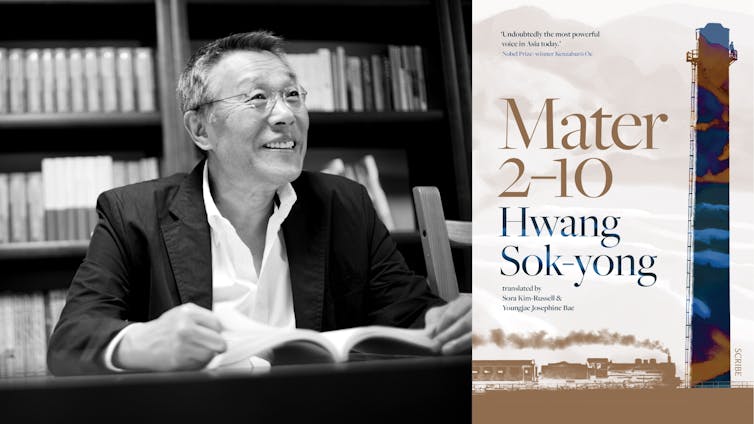
Courtesy of Booker Prizes
Starting in Nineteen Twenties Seoul, on the dawn of latest experience, this life like and dramatic story of railroad employees was initially revealed twice weekly in an online based mostly journal, conserving readers engaged and anticipating the next instalment. It has been republished as a 467-page e-book, which slowly unfolds not merely the story of Jino’s family, nevertheless the 100-year historic previous of the Korean Peninsula.
On this sprawling epic, Hwang Sok-yong has created one different conventional that delves deep into the historic previous of the Korean people in North and South Korea. Readers shall be taught regarding the peninsula’s historic previous, from Japanese occupation via the separation of North and South, via the frequently experiences of three generations of a family of railway employees.
Mater 2-10 is a tragic and heartbreaking saga concerning the necessity to heal. It is also a deft translation, which captures Hwang Sok-yong’s signature unpretentious, unadorned Korean prose.
Reviewed by Hyun Seon Lee, professorial evaluation affiliate of East Asian languages and cultures
What I’d Comparatively Not Suppose About by Jente Posthuma, translated by Sarah Timmer Harvey
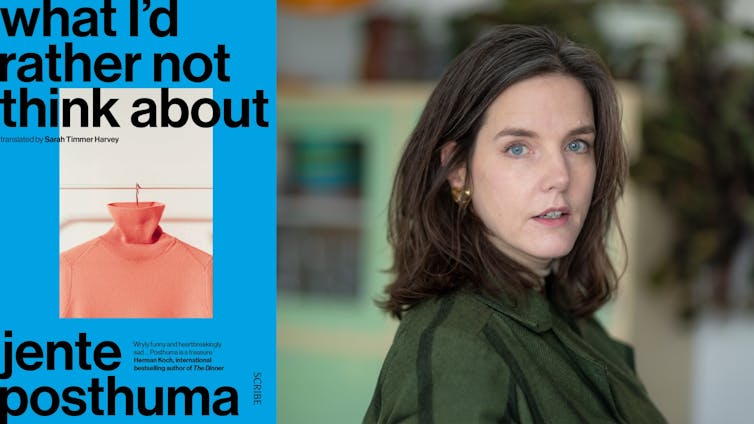
Courtesy of Booker Prizes
Discussing Sylvia Plath’s The Bell Jar, the protagonist of Jente Posthuma’s What I’d Comparatively Not Suppose About observes: “After all of the items I’d heard, I was anticipating a dense, sappy story nevertheless was surprised by the novel’s light tone.” This description would possibly refer equally to Posthuma’s private novel, which moreover focuses on despair and suicide, and which handles its materials with wry humour.
Everyone knows the novel’s protagonist as Two on account of she is the youthful of twins, and her older brother as One. Two’s grief following her brother’s suicide causes her to duplicate on their relationship via a set of fragmented concepts, all through which recurring images flooring: the Twin Towers, the very fact TV current Survivor and the Nazi doctor Josef Mengele.
I found the novel extremely efficient in its probing of the delicate relations between intimacy and distance, love and leaving – themes that rely as rather a lot on what’s unsaid, as on what’s knowledgeable.
Reviewed by Anne Whitehead, professor of latest and updated literature
Crooked Plow, by Itamar Vieira Junior, translated by Johnny Lorenz
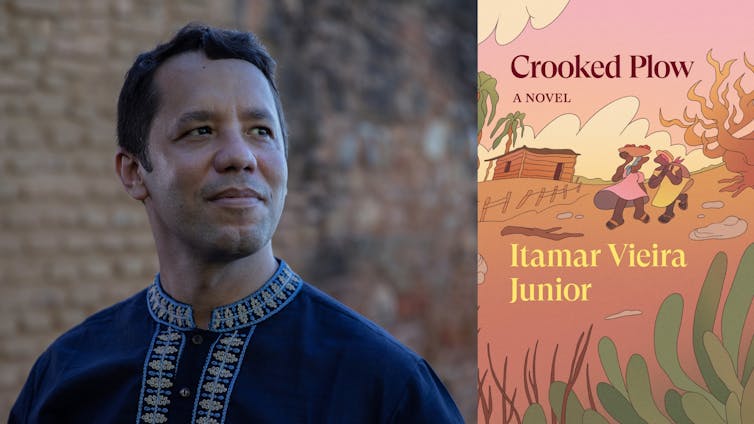
Courtesy of Booker Prizes
Crooked Plowset in Bahia’s hinterlands, examines the battle for land and the exploitation of quilombolas, descendants of Afro-Brazilian enslaved people who escaped from captivity.
The novel begins with a defining second throughout the lives of siblings Bibiana and Belonísia: having fun with with a knife, one amongst them ends up mute. With out revealing who cannot converse, Bibiana narrates the first half, recounting the arrival of her family to the Água Negra farm.
Throughout the second half, Belonísia narrates her harrowing journey after marrying an abusive man. Nonetheless, her story takes a flip when Água Negra’s ladies reclaim firm, whereas Bibiana returns home politicised and married to Severo, who organises worker’s rights.
Santa Rita Pescadora, even enchanted or spiritual entity of the jar (an Afro-Brazilian religion practised in Bahia), narrates the last word half, unravelling the violence endured by quilombolas by means of the slavery interval, corononelismo and large-scale firm agriculture.
In Crooked Plow, Vieira Júnior crafts a rich, multi-voiced novel that does not shrink again from portraying the present-day legacies of Brazil’s colonial earlier.
Reviewed by Rafael Mendes Silva, PhD in Latin American analysis
Kairos by Jenny Erpenbeck, translated by Michael Hofmann
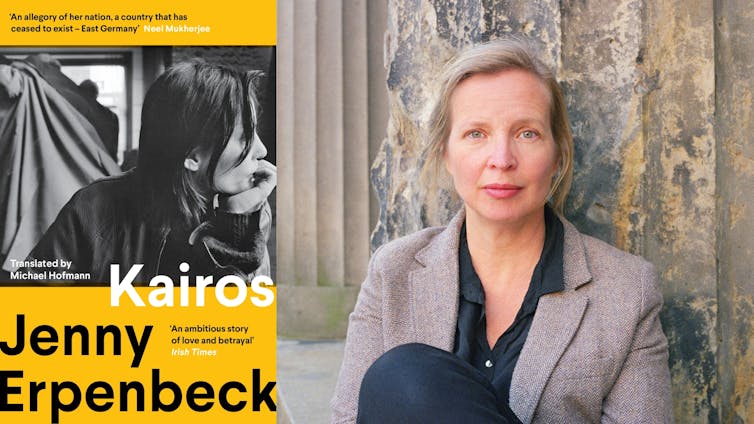
Courtesy of Booker Prizes
In Jenny Erpenbeck’s Kairos, a character asks whether or not or not a human being is “a container to be stuffed by time with regardless of it happens to have useful” or if there shall be life previous historic previous. The novel dramatises this question all by means of.
The e-book is prepared throughout the ultimate years of the German Democratic Republic (GDR) (1949-90) as western capitalism erodes a collapsing socialism. In opposition to this context, two lovers, the ageing writer Hans and the late teenage Katharina, reside out a doomed affair, having met on a bus one moist evening.
The mundane deceptions of infidelity that make up the e-book – Hans and Katharina meet in cafes, watch motion pictures, take heed to music, purchase groceries, take secret holidays – are freighted with historic previous and emotional depth as a result of the plot plunges in route of its ending, the place the hyperlinks between politics and the non-public develop to be tragically clear.
For some, the spiralling, fracturing and intensifying outcomes this tragic view has on the characters, the plot and the style, might be an extreme quantity of. For others, it’d exactly depict the nightmarish dislocations of Europe throughout the twentieth century.
Reviewed by Edward Sugden, senior lecturer in American literature
The Particulars by Ia Genberg, translated by Kira Josefsson

Courtesy of Booker Prizes
The Particulars, initially revealed as The small print in Swedish, is clearly the readers’ favourite to win the Worldwide Booker Prize. Scores and critiques all through Storygraph, Goodreads, Bookstagram and BookTok, are falling in love with all 151 pages of Joseffson’s immaculate translation and Genberg’s attraction.
This viral novella opens with an unnamed woman, bedridden and throughout the throes of a burning fever which renews her curiosity in a half-forgotten e-book (The New York Trilogy by the late Paul Auster) that is inscribed with a handwritten message from a earlier lover.
Though it is proof in opposition to a chronological order, the e-book travels alongside the tectonic plates of pre-internet life throughout the 90s, and shifts us right into a model new air of change on the flip of the millennium. In 4 chapters named after Johanna, Niki, Alejandro and Birgitte – relationships which have shaken the narrator’s existence – we’re transported to a earlier that is captured as vividly as a result of the state of the soul itself.
The Particulars is a splendidly written, quiet COVID novel which cleverly disguises the pandemic, offering a genius kind of publicity treatment to readers who haven’t felt capable of study COVID novels. Genberg and Joseffson are honey and gold throughout the e-book’s final chapter which stays with you. This beautiful little e-book and its extraordinarily perceptive actually really feel for the small particulars of a life-time is an outstanding addition to the fashion’s most interesting coronavirus fiction.
Reviewed by Lucyl Harrison, PhD candidate throughout the school of humanities
